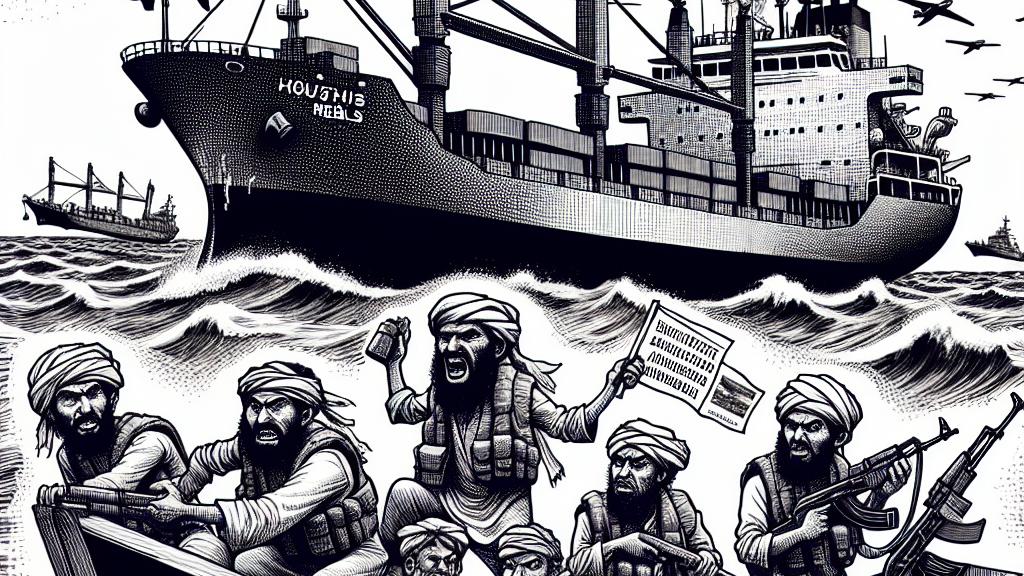High Seas Hijinks: Houthi Rebels Take Aim at International Shipping!
Overview
- Houthi rebels in Yemen have escalated their maritime attacks amidst the Israel-Hamas conflict.
- The assaults on merchant ships are framed as solidarity with Palestine, threatening vital trade routes.
- International military responses raise complex challenges for regional and global maritime security.

Escalating Maritime Aggression by Houthis
In the turbulent waters of the Gulf of Aden, Yemen's Houthi rebels have initiated a bold campaign against international shipping, recently boasting about striking a Liberia-flagged merchant vessel. This alarming escalation reflects their strategic aim to leverage maritime security as a part of regional political dynamics, particularly in the context of the ongoing Israel-Hamas conflict. The Houthis claim these strikes are efforts to express solidarity with Palestinians living in Gaza, thus framing their aggressive actions within a larger narrative of resistance against perceived aggressors. This shift in tactics not only endangers international maritime trade but also poses significant risks to sailors and shipping companies operating in critical transit lanes.
International Responses: A Call to Military Action
In light of these threats, the United States and United Kingdom have responded with targeted airstrikes aimed at Houthi military installations, hoping to curb their capacity to launch further missile attacks. These precision actions have focused on degrading key infrastructures, such as missile launch sites and drone facilities, with the intention of securing vital waterways. However, the Houthis remain unyielding, vowing to continue their attacks, which they assert are driven by the need to counter Israeli interests. As the conflict intensifies, it creates a precarious situation for international relations, where external military involvement risks escalating tensions and potentially embroiling other regional powers in the conflict.
Widespread Economic Impacts and Global Trade Delays
As the Houthi attacks on shipping intensify, the fallout is felt far beyond the immediate conflict zone, prompting shipping companies to seek alternative routes to avoid dangerous waters. This shift is leading to longer transit times and increased freight costs, which could ripple through global supply chains and raise consumer prices worldwide. The disruption in maritime operations underscores the fragility of international trade networks, as companies reassess risk factors associated with navigating through historically significant routes like the Strait of Bab al-Mandab. Addressing these challenges necessitates international cooperation and diplomatic engagements to ensure safe passage for maritime commerce while simultaneously seeking to resolve the underlying geopolitical tensions that fuel this ongoing crisis.

Loading...